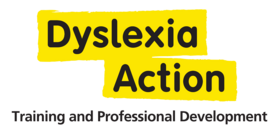In this webinar, Glenys Heap, Dyslexia Action's Director of CPD discusses the key issues related to learning difficulties frequently co-occurring with dyslexia such as dyspraxia, ADHD, etc.
Webinar follow up
There were several questions and comments which it was not possible to address during the webinar. Glenys Heap addresses them below:
Labels
I didn’t mean to give the impression that labels should be done away with – they are very important, but what I think is more important is that we see and treat the child’s individual needs rather than just teach to a label. The evidence for co-occurrence is great and we cannot assess for everything. We need to be aware of the labels and the kind of difficulties that we associate with them, but also that they will overlap.
b/d confusion
Many, but by no means all, emergent readers have difficulty with b/d confusion. This may continue up to the age of 9 years. I have worked with a number of adults who still have visual confusion with letters such as b/d and they have to use some sort of strategy to deal with it.
Autism – not a specific learning difficulty
I didn’t mean to infer that ASD was a specific learning difficulty, but it may still co-occur with dyslexia etc. I have worked with several people who have Asperger’s and are dyslexic/dyspraxic as well and so I felt it was important to include it.
Assessment tools for co-occurring difficulties
Dyslexia Action has a screening tool for teenagers and adults called the HDQ (Hidden Disabilities Questionnaire) which gives factor scores relating to the different SpLDs and this can indicate the presence of co-occurring difficulties. I don’t know of any others.
Dyscalculia assessment to target teaching
I know that Steve Chinn will shortly be publishing a book that deals with the question of assessment of maths difficulties and dyscalculia, so worth looking out for that.
Dysgraphia – where does this fit in?
Here's a link to a site with more information on dysgraphia: http://www.as.wvu.edu/~scidis/dysgraphia.html
How can I help my dyslexia learners in the long term
Good multisensory teaching. Understand the difficulty – we have some good, short CPD courses on offer – see our website. Consider the effects on working memory – good book by Sue Gathercole and Tracy Packiam Alloway called ‘Working Memory & Learning’ (2008) Sage Publications
I have found that students at University discover they are dyslexic when they fail to organise themselves for exams…a first assignment etc. … any comments
Yes, many young people struggle at school and may not achieve their potential, but they have a lot of support – from parents, teachers and peer groups and manage to achieve the grades they need to get to University, but when that support disappears and there are lots of other pressures and stresses, then they begin to struggle and need the kind of support offered by special teaching services in the University. This will be mainly study skills, organisation, etc.
Can you use psychometric testing for dyslexia when the student has ASD and Dyspraxia?
I asked Dr John Rack for an answer to this one and he says: Yes, but because the tests could be affected by both ASD and dyspraxia it would be hard to know what is responsible for what….. but you could say whether or not there were features of dyslexia over and above dyspraxia and ASD by using different tests.
What research do you recommend for intervention with students with ADHD? Would you recommend particular strategies for helping teenagers to listen and attend?
There is a useful chapter on ADHD in a little book by Fintan O’Regan (also worth checking his website) called ‘Challenging Behaviours Pocketbook’.
A really good website to visit is: http://www.adhdandyou.co.uk/?gclid=CITAgojRxqkCFcod4Qodwx8VEQ
